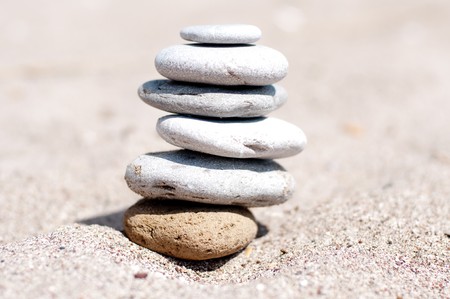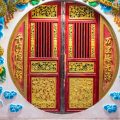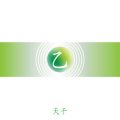1. Introduction to Feng Shui and Mirrors
Feng Shui is an ancient Chinese practice that focuses on creating harmony between people and their environments. Its core idea is all about balancing energy, also known as “chi,” to bring health, happiness, and prosperity into a space. Even though its roots are in Asia, Feng Shui has found a place in many American homes thanks to its easy-to-apply guidelines and the positive effects people say it brings.
One of the most powerful tools in Feng Shui is the mirror. While mirrors are common in American households for practical reasons like checking our appearance or making spaces feel bigger, Feng Shui teaches us that mirrors do much more than reflect images—they also reflect and direct energy. Proper mirror placement can help invite good vibes, expand light, and even attract opportunities. On the flip side, placing mirrors incorrectly might disturb the flow of energy, making your home feel unsettled or restless.
Here’s a quick look at why mirrors matter so much in Feng Shui and how they interact with energy in American homes:
| Mirror Use | Feng Shui Purpose | Common Application in American Homes |
|---|---|---|
| Expanding Space | Makes small rooms feel bigger and more open by doubling the view | Used in entryways, living rooms, or narrow hallways |
| Reflecting Light | Brightens up dark areas to improve overall energy flow | Placed opposite windows or lamps to boost natural or artificial light |
| Redirecting Energy (Chi) | Bounces negative energy away from certain areas or brings good energy into important spaces | Used near front doors or facing beautiful outdoor views |
Understanding these basics helps you see why mirror placement matters—not just for looks but for the way your home feels every day. In the next sections, we’ll dive deeper into the specific do’s and don’ts that make all the difference according to Feng Shui principles.
2. Optimal Placements for Mirrors
When it comes to placing mirrors in your home, Feng Shui has some clear guidelines that can help you invite positive energy, light, and a sense of spaciousness. If you live in a typical American house or apartment, here are some friendly tips on where to hang mirrors for the best results:
Best Rooms for Mirrors
| Room | Why Its a Good Spot | Feng Shui Benefits |
|---|---|---|
| Living Room | Mirrors reflect natural light and can make this social space feel larger and brighter. | Enhances family harmony and attracts positive energy. |
| Dining Room | A mirror here doubles the abundance of food and gatherings. | Symbolizes wealth and prosperity. |
| Entryway (Not Facing the Door) | Placing a mirror on a side wall as you enter reflects light but doesnt push energy out the door. | Welcomes good energy into your home. |
| Hallways | A well-placed mirror can open up narrow spaces and improve flow. | Allows chi (energy) to circulate more freely. |
| Home Office | Positioning a mirror so you can see the door while working increases awareness and focus. | Promotes clarity and productivity. |
Smart Mirror Placements by Floor Plan
Open Concept Living Areas
If your home has an open floor plan, use mirrors to reflect attractive views or to draw more daylight from windows deeper into the space. Avoid reflecting cluttered areas or sharp corners.
Narrow Hallways or Small Foyers
Add a mirror along one wall to visually widen the space. This is especially helpful in smaller American homes or apartments where entryways can feel tight.
Kitchens
Kitchens are usually not recommended for large mirrors in Feng Shui, but a small decorative mirror above a kitchen table can boost abundance. Just don’t place it directly facing the stove or sink, as this can create energetic imbalance.
General Tips for Placement
- Height Matters: Hang mirrors at eye level so they reflect faces rather than ceilings or floors.
- Avoid Direct Reflections of Beds: In bedrooms, don’t position mirrors where you can see yourself while lying in bed—it’s believed to disrupt restful sleep.
- No Mirrors Facing Front Doors: Placing a mirror directly across from your main entrance is said to bounce good energy right back out.
- Reflect Positive Views: Try to position mirrors so they reflect something beautiful—a nice piece of art, greenery from outside, or sunlight streaming in through a window.
![]()
3. Common Mirror Placement Mistakes
When it comes to using mirrors in your home, its easy to make some classic mistakes that can disrupt the positive energy flow, according to Feng Shui principles. Many Americans unknowingly place mirrors in ways that can actually create more problems than solutions. Lets look at some of the most frequent errors and why they matter.
Typical Mirror Placement Errors
| Mistake | How It Affects Your Space |
|---|---|
| Placing a mirror directly facing the front door | This pushes good energy (chi) right back out of your house, making it hard to attract prosperity and harmony. |
| Mirrors reflecting clutter or mess | Whatever a mirror reflects is doubled, so if it faces piles of shoes, laundry, or a messy room, it amplifies chaos and stress in your home. |
| Hanging mirrors in bedrooms facing the bed | This can disturb restful sleep by bouncing energy around the room, which may lead to restlessness or even relationship issues. |
| Using broken or cloudy mirrors | Damaged mirrors symbolize fragmented or unclear energy, which can negatively impact well-being and luck. |
| Oversized mirrors in small spaces | While mirrors can make rooms look bigger, too large a mirror might overwhelm the space and create an unsettling feeling. |
| Mirrors reflecting sharp corners or edges (poison arrows) | This can magnify negative energy by doubling the sharpness directed into a room, making the environment less comfortable. |
Why These Mistakes Matter
These common placement errors arent just about aesthetics—they influence how you feel in your home. Poorly placed mirrors can increase anxiety, disrupt sleep, and even block opportunities for growth. Thats why its important to think about what your mirror reflects and where you put it, keeping both design and Feng Shui in mind.
4. Do’s of Mirror Placement
Use Mirrors to Maximize Natural Light
One of the best ways to use mirrors according to Feng Shui is to place them where they can reflect natural light. This makes your space feel brighter and more uplifting. For example, you can hang a mirror opposite or adjacent to a window to bounce sunlight into darker areas of your home.
Create an Illusion of Spaciousness
If you have a smaller room or apartment, strategically placing mirrors can make it appear larger. Position a large mirror on one wall, especially in living rooms or entryways, to open up the area visually and energetically.
Reflect Beautiful Views and Positive Energy
Mirrors should ideally reflect something pleasant, such as a nice piece of art, greenery from outside, or a well-arranged part of your home. This practice not only enhances positive energy (Qi) but also doubles the beauty in your living space.
Practical Tips for Effective Mirror Placement
| Tip | Description |
|---|---|
| Opposite Windows | Bounce natural light deeper into your home by hanging mirrors across from windows. |
| Near Entryways | A mirror near the entrance helps expand the space and welcomes positive energy. |
| Dining Room Walls | Placing a mirror in the dining area symbolizes abundance by “doubling” food and gatherings. |
| Behind Decor Accents | Position mirrors behind plants, artwork, or candles to reflect beauty and enhance their effect. |
Avoid Cluttered Reflections
While mirrors are great for amplifying space and light, always check what is being reflected. Make sure your mirror isn’t doubling clutter or messes—keep the reflected view clean and organized for the best Feng Shui results.
5. Don’ts of Mirror Placement
Important Warnings and Guidelines to Avoid
Mirrors can be powerful tools in Feng Shui, but when placed incorrectly, they may create more problems than solutions. Below are important don’ts for mirror placement, blending traditional Feng Shui wisdom with practical tips for American homes.
Common Mirror Placement Mistakes
| Don’t | Why It’s a Problem (Feng Shui & American Lifestyle) |
|---|---|
| Place mirrors facing the bed | This can disrupt sleep and cause restlessness; many people report feeling “watched” or unsettled at night. |
| Hang mirrors directly across from the front door | In Feng Shui, this pushes positive energy (chi) right back out of your home, reducing feelings of welcome and security. |
| Position mirrors to reflect clutter or messes | This doubles negative energy and makes rooms feel more chaotic, which is stressful in busy American households. |
| Install mirrors on the ceiling or above beds | Considered unlucky and unsettling, it creates discomfort, especially in bedrooms where relaxation is key. |
| Use broken or chipped mirrors | These symbolize bad luck and negative energy—plus, they’re unsafe for families with kids or pets. |
| Face mirrors toward bathroom doors or toilets | This may amplify unwanted energy and lead to health or financial issues according to Feng Shui lore. |
| Place mirrors at the end of long hallways | This can bounce energy back too quickly, making the space feel rushed or unsettling rather than peaceful. |
Additional Tips for American Homes
- Avoid oversized mirrors in small entryways: They can overwhelm the space and make it feel unbalanced.
- Don’t use mirrors as “cover-ups” for damaged walls: This hides issues instead of fixing them and traps negative vibes in your home.
- Be careful with mirror tiles: Uneven reflections can chop up energy flow and look visually chaotic in open-plan homes.
Key Takeaway: Place Mirrors with Intention
The main idea is to use mirrors thoughtfully. Avoid placing them where they might bring discomfort or amplify negativity. When in doubt, think about what your mirror reflects—if it doesn’t bring you peace or positivity, it’s best to try another spot!


